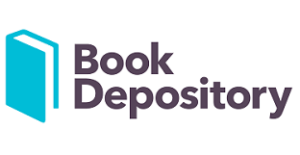Having spent the last 30 years immersed in the world of technology, I’ve closely observed the evolution of the internet and mobile technologies. This journey has led me to become intimately acquainted with machine learning and recommendation technologies during my tenure at ChangingWorlds and Amdocs. Nevertheless, what truly amazes me is the rapid ascent of Generative AI into the mainstream over the past year. Recently, Kevin Empey, the founder of WorkMatters, took the stage at prominent HR events in both Ireland and Canada. At one such conference in Canada, a word cloud, generated during the event, unveiled the primary concern of the 1400-strong delegation: the profound impact of AI on HR.

Artificial Intelligence (AI) is becoming a powerful driver for driving agility within HR practices and will play a pivotal role in the ongoing HR digital transformation. Here are several essential aspects of AI’s contribution to cultivating agility in HR:
Recruitment and Talent Acquisition: AI-powered applicant tracking systems (ATS) expedite the hiring process by efficiently sifting through candidate profiles, allowing HR to swiftly identify the most suitable candidates. Andreea Wade set up opening.io ( now part of ICIMS) and led the charge in ai enabled talent acquisition as far back as 2015.
Streamlined Onboarding: Saas platforms such as userpilot leverage AI to automate the onboarding process by customizing training plans and disseminating pertinent information to new hires. Chatbots, in this context, play a pivotal role in assisting employees with paperwork and acquainting them with company policies.
Predictive Analytics: AI and machine learning algorithms analyze employee data to predict attrition, enabling HR to proactively implement measures to retain valuable talent. Tools like https://hrflow.ai use predictive analytics assists in identifying high-potential employees, facilitating succession planning.
Personalized Learning and Development: AI-driven learning platforms offer personalized training and development programs based on employees’ skills, goals, and performance. Virtual reality and augmented reality further enrich training experiences, allowing employees to acquire skills effectively.
Enhanced Employee Engagement: AI-powered sentiment analysis tools gauge employee sentiment through surveys, feedback mechanisms, and communication channels. Effy.ai for example provide tools, chatbots and insights to drive performance management and employee engagement
Challenges and Ethical Considerations: Balancing Agility with Responsibility
Like all technologies, AI is an incredible powerful tool which can be used to provide improvements not just for HR but for our teams and employees. However there are a number of areas that need special attention. In his excellent book on emerging technologies called the Coming Wave, Artificial IntelligenceI Pioneer Mustafa Sulyeman argues that we need to be incredibly thoughtful about the activation of AI capabilities, the extraordinary power that it will provide to those who wield it and the unintended consequences of unleashing AI more broadly without the ability to contain it.
In the HR context we need to be particularly mindful of the following:
Bias Mitigation: AI algorithms may inadvertently inherit biases from historical data, potentially leading to discriminatory outcomes. HR professionals must vigilantly ensure fairness and transparency in AI-driven decisions. For example Amazon developed a hiring algorithm by utilizing a decade’s worth of employment history information. The dataset indicated a workforce primarily comprised of males, causing the algorithm to exhibit bias by negatively assessing applications and downgrading resumes that included the term “women” or any related phrasing.
Privacy Assurance: The collection and analysis of employee data heighten concerns about privacy. To address these concerns, companies must establish unequivocal data usage policies and adhere to pertinent regulations, such as GDPR. Meta for example allows sharing of data across popular platforms for example Facebook and Instagram which creates challenges around data boundaries. In a workplace context we also have to be sensitive and aware of how people’s data is shared and used
Job Displacement Concerns: The automation of certain HR tasks can understandably raise concerns about potential job displacement. It’s crucial to acknowledge that AI often complements rather than replaces human roles, allowing HR professionals to focus on strategic and high-value functions. Nonetheless, as demonstrated by ChatGPT and DALL-E, even creative endeavours such as generating ideas, poetry, and art—traditionally thought to be exclusive to humans—are now within the realm of AI capabilities.
Conclusion
The modern work environment demands that HR practices embrace agility, data-driven decision-making, and adaptability to cater to the ever-changing needs of both organizations and employees. Artificial intelligence (AI), as a transformative force, equips HR departments to effectively navigate this transformative journey. By leveraging the potential of AI in areas such as recruitment, talent management, learning and development, and employee engagement, HR can play a pivotal role in steering organizational success in the dynamic realm of work. Nevertheless, as HR professionals tasked with safeguarding organizational culture and guiding the responsible integration of technology, it is incumbent upon us to stay at the forefront of technological advancements. This enables us to exert influence over company policies and decision-making, ensuring a balanced approach that combines progress with due caution as we continue to embrace technological changes in the HR domain.
Are you an HR professional interested in the transformative power of AI? Check out our solutions here – https://workmatters.ie/product/hr-ai-strategy-and-implementation/
Let’s connect and continue the conversation.








